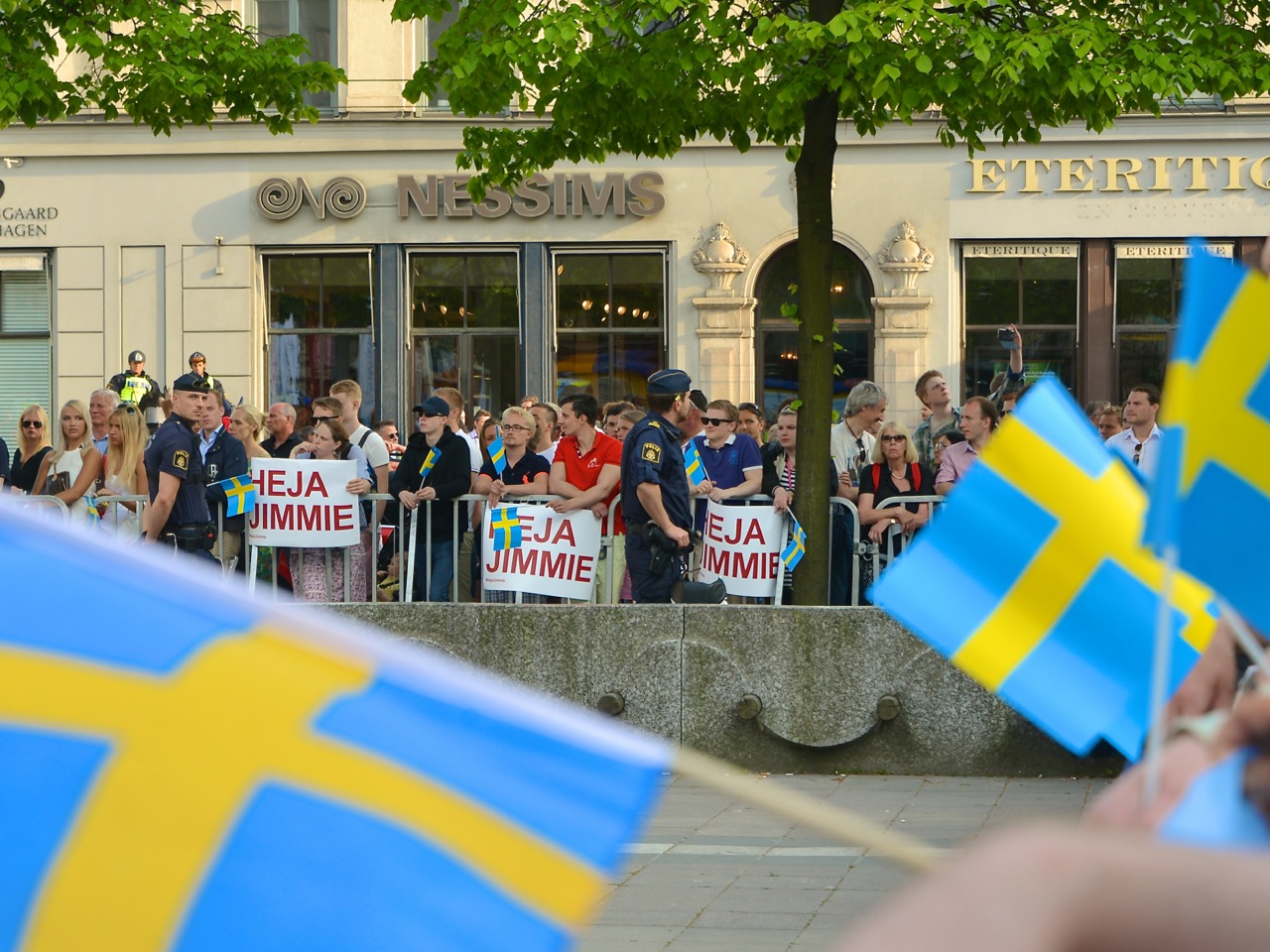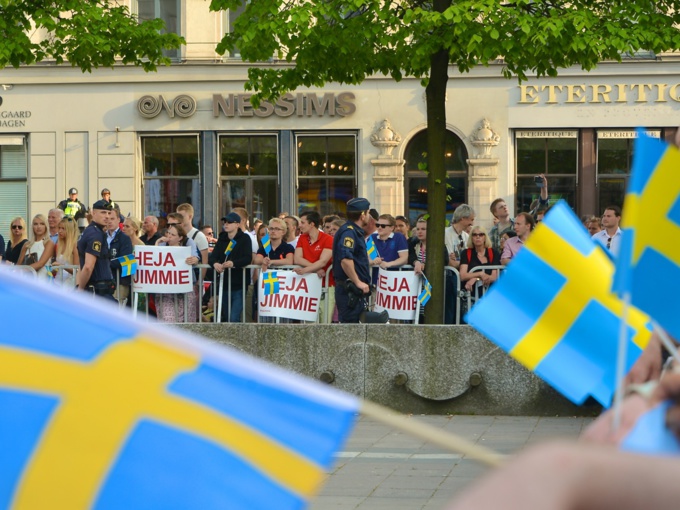The final results of the parliamentary elections in Sweden will be known only after two weeks. However, during the night after the vote, the electoral committee has counted 90% of votes. All eight parties that participated in the elections overcame the four percent barrier and went to the Riksdag (parliament). The main intrigue is also revealed: the far-right Sweden Democrats took the third place with the result of 17.6%.
Their popularity was not affected either by accusations of radicalism, or by hints of ties with Russia. For example, on the eve of the elections pictures with the inscription "Anyone who votes for the Sweden Democrats, votes for Moscow" gained huge popularity on social networks. The images depict a man in military uniform with the Russian president's face; he holds a small boy with the face of the Sweden Democrats leader Jimmie Åkesson. As a result, the party, which promises the Swedes a "serious" approach to migration policy and protection from organized crime and terrorism, has improved its results by 4.7% compared to 2014.
The ruling Social Democratic Party won 28.4% of the vote, the center-right Moderate Party gained 19.8%. Another five parties scored 4.3% to 8.6% of the vote.
The Social Democratic Party has been winning elections for more than a hundred years, but for half a century they have failed to score more than 50% of the vote. To form the government, they usually resort to the help of the Left Party and the Green Party (7.9% and 4.3% of the votes in these elections, respectively), but now the overall result of the alliance is 40.6%, and it does not guarantee them a place in the Cabinet of Ministers.
The center-right alliance lags behind the winners only by a couple of tenths of a percent. The Moderate Party in alliance with the Centre Party (8.6%), the Christian Democrats (6.4%) and the Liberal Party (5.5%) are gaining 40.3% of the vote. In this scenario, the left alliance can count on 144 of the 349 seats in the Riksdag, the right one - on 143, the Sweden Democrats – on 62.
On Wednesday, the electoral commission should process and publish data about 300 thousand more ballots from abroad and remote areas of the country. Swedes living in other countries traditionally vote for the right coalition. That is why the voting results can change in their direction, and the two blocks can have the same number of seats in the parliament.
In this regard, the Riksdag's new composition faces the problem of forming a government. Before the elections, all parties declared that they would not have any business with the radical Sweden Democrats. The party itself also did not intend to join the coalition. However, the very next day after the vote, it sent an official invitation to negotiations on formation of the government to the Moderate Party and the Christian Democrats, and called for resignation of the Prime Minister of the Social Democrats Stefan Löfven.
source: theguardian.com
Their popularity was not affected either by accusations of radicalism, or by hints of ties with Russia. For example, on the eve of the elections pictures with the inscription "Anyone who votes for the Sweden Democrats, votes for Moscow" gained huge popularity on social networks. The images depict a man in military uniform with the Russian president's face; he holds a small boy with the face of the Sweden Democrats leader Jimmie Åkesson. As a result, the party, which promises the Swedes a "serious" approach to migration policy and protection from organized crime and terrorism, has improved its results by 4.7% compared to 2014.
The ruling Social Democratic Party won 28.4% of the vote, the center-right Moderate Party gained 19.8%. Another five parties scored 4.3% to 8.6% of the vote.
The Social Democratic Party has been winning elections for more than a hundred years, but for half a century they have failed to score more than 50% of the vote. To form the government, they usually resort to the help of the Left Party and the Green Party (7.9% and 4.3% of the votes in these elections, respectively), but now the overall result of the alliance is 40.6%, and it does not guarantee them a place in the Cabinet of Ministers.
The center-right alliance lags behind the winners only by a couple of tenths of a percent. The Moderate Party in alliance with the Centre Party (8.6%), the Christian Democrats (6.4%) and the Liberal Party (5.5%) are gaining 40.3% of the vote. In this scenario, the left alliance can count on 144 of the 349 seats in the Riksdag, the right one - on 143, the Sweden Democrats – on 62.
On Wednesday, the electoral commission should process and publish data about 300 thousand more ballots from abroad and remote areas of the country. Swedes living in other countries traditionally vote for the right coalition. That is why the voting results can change in their direction, and the two blocks can have the same number of seats in the parliament.
In this regard, the Riksdag's new composition faces the problem of forming a government. Before the elections, all parties declared that they would not have any business with the radical Sweden Democrats. The party itself also did not intend to join the coalition. However, the very next day after the vote, it sent an official invitation to negotiations on formation of the government to the Moderate Party and the Christian Democrats, and called for resignation of the Prime Minister of the Social Democrats Stefan Löfven.
source: theguardian.com



















